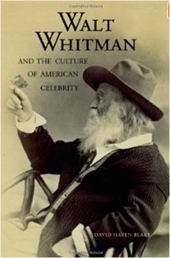

 |  |
|
Liberty and Celebrity
|
Please go to the new Coffee Coaster site implemented more gracefully in Wordpress. This page: http://brianrwright.com/CoffeeCoasterBlog/?p=3157 |
This definition of celebrity—being known for being known—is pretty close  to a quote from a an interesting piece I read from a Web article by Daniel Epstein published a couple of years ago in The Weekly Standard of all places[1]. Actually, Epstein was quoting Daniel Boorstin from The Image: Or What Happened to the American Dream: "The celebrity," Boorstin wrote, "is a person who is well-known for his well-knownness."[2]
to a quote from a an interesting piece I read from a Web article by Daniel Epstein published a couple of years ago in The Weekly Standard of all places[1]. Actually, Epstein was quoting Daniel Boorstin from The Image: Or What Happened to the American Dream: "The celebrity," Boorstin wrote, "is a person who is well-known for his well-knownness."[2]
Epstein continues by making a distinction between fame and celebrity: fame being based more on actual achievement, while celebrity especially recently become more the art of being paid attention to by large numbers of people on television regardless of any
personal noteworthiness. Probably the most classic example is Brian "Kato" Kaelin, the house guest of OJ Simpson. The Kaelin persona reminds me of the Woody Allen movie, Zelig, in which a nondescript man seeks to blend in and dissemble as if he were one of the famous people himself.
For some literature on the subject that looks insightful, check out Walt Whitman and the Culture of American Celebrity.
It occurs to me that the modern phenomenon of celebrity has more to do with television and mind-control than most people are aware of. E.g., the Israeli government commits flagrant <killing of innocent civilians on the basis of ethnic background> via airstrikes in an <embargoed walled-off compound> they created named Gaza, and what's in the news? What's on TV? A lot of ads for Gran Torino and Clint Eastwood. Plus the NFL playoffs. (The talk shows and newspapers pretty much ignore what's happening when it looks bad for the Israelis.)
Now Obama and the inauguration. Talk about celebrity over substance!
###
Over time then Americans, in particular, have succumbed to the 'bread and circuses' thrown to them—though lately we're not getting as much bread as we used to—by the empire. The empire gets a free pass because we've been led to believe—through our government schools and our media and our court intellectuals—that what's truly important is whether Anna Nicole Smith is abusing drugs, or Paris Hilton deserves jail, or Tom Cruise and Katie Holmes can reconcile their religious beliefs. The world has become one giant People Magazine.
Speaking of People Magazine
Just as an experiment, I'm going to give a listing of the well-knowns from the January 12, 2009, issue of People. When I had money, I'd pick up a People from the Kroger checkout lane every other week; let's see how many names are still regulars: Britney Spears (of course), Jessica Simpson, Ashlee Simpson, Tom Brady, Giselle Bündchen, Brad Pitt, Angelina Jolie, Jennifer Anniston, Taylor Swift, Tom Cruise, Mariah Carey, Gwen Stefani, Simon Cowell, Daniel Craig, Pierce Brosnan, Rob Lowe, Hugh Jackman, Jack Nicholson, Sean Combs, Will Smith, Prince Harry, Prince William—what are the last names: "of Wales"?—, David Beckham, Ellen DeGeneres, Nicole Richie, Jim Carrey, Jake Gyllenhaal, Reese Witherspoon, Denise Richards, Naomi Watts, Drew Barrymore, Madonna, Kelly Ripa, Courteney Cox, Carrie Underwood, Paris Hilton, Christina Aguilera, Kate Winslet, Ginnifer Goodwin, Leonardo DiCaprio, Owen Wilson, Demi Moore, Ashton Kutcher, Justin Timberlake, Cameron Diaz, Tyra Banks, and of course, Oprah.
And I haven't even got past the Books section... nor have I listed the name if I personally hadn't heard of it yet (they could be the hottest thing going but if I don't recognize them from People before, chances are they haven't become a regular). I put italics on what I see as the most listed for the previous three years, and bold-and-italics for "seemingly in every weekly issue of People, without exception." [You can recognize my devious, hopefully slick move here to insert these celeb names for the search engines; My experience: a book review of Mayflower, I'm pretty sure, is one of my higher-visited pages because a sentence mentions Britney Spears.]
So when you get right down to it, the phenomenon of celebrity has been cultivated by the <singular controlling entity> to serve as a distraction from the ongoing stealing of our liberty. Speaking of which, let's discuss what celebrity means inside Libertarian World.
Over the years in my libertarian-activist surroundings (~1970-present), I've noted at one time or another the uncharacteristic snobbery that seemed to emanate from many of the guest speakers at conventions, some of those connected with the various political machines angling to control the Libertarian Party, writers, media personalities, and every once in a while a real celebrity (i.e. known outside the "libertarian industry"): I recall Orson Bean and Robert Ringer, in particular, from the earlier days.
More recently, while attending the Free State Project Freedom Forum in Concord, New Hampshire, in early 2007, I shared some thoughts on celebrity regarding our banquet speaker John Stossel. This was written on the occasion of his arrival for a book signing:
Wow, you'd have thought (New England Patriots' Quarterback) Tom Brady had walked into a cheerleaders' convention. A hundred-plus people, mostly in dress clothes, stand in lines winding back and forth among the lit tables, holding their copies of Give Me a Break or the more recent Myths, Lies, and Downright Stupidity. They eagerly seek a signature and greeting from a genuine pro-liberty celebrity....
Celebrities, by virtue of the attention they receive from others, form a special category of personhood. People feel somehow uplifted by the presence of celebrity and are willing to send money. But it's a double-edged sword, too, and I'll wager a fair number of, especially, younger celebs are pathologically anxious about losing their fame overnight.
I don't think that worries John too much, because he's basically productive in the truth industry... a growing field. Consider also if even one of the major celebs who has come out as a libertarian—Kurt Russell or Clint Eastwood, to name two—were to take an active, leadership role in the Libertarian Party... or the Free State Project. I'm just saying that could be a major boost. Advocates for Self Government has consciously attempted to cultivate celebrity support.
I agree that attracting celebrities is a worthwhile idea. But an "I'm a libertarian" statement from Kurt Russell on The View really doesn't translate into much of any actual progress or work toward a free society. People hear what a celebrity says, but most people are an integral part of the celebrity machinery... thinking a) it's important what someone well-known thinks about a subject and b) I'm not well-known, nor will I be well-known, therefore what I say or do is hardly worth anything.
It's a better idea to cultivate celebrities within our midst. There are a number who qualify. We have the beginnings of noteworthiness in the so-called "libertarian industry," which has become a shorthand for all those people who are well known as leaders of sorts to us.[3] Several names come to mind: David Nolan (founder of the LP), Mary Ruwart (author of Healing our World), David Bergland (former LP presidential candidate and author of a great little libertarian primer Libertarianism in One Lesson), Jason Sorens (founder of the Free State Project), and many others.
But consider that none of these individuals—or any others I can think of except perhaps Aaron Russo (RIP), who ran unsuccessfully for the LP presidential nomination in 2004[4]—is a celebrity to the general public. So we have our work cut out for us.
I recall listening to Nathaniel Branden speak at the 1979 National LP Nominating convention in Los Angeles, where he made the point that far too many of us active in the party cannot imagine—indeed tend to resist—that we should step up to being successful. We're too used to being the big fish in the small pond, and we resent that we'll become insignificant if the movement gets large.
Sort of a will to failure, a will to not become celebrated, to back away from any prospect of deserved celebrity, cling to local-hero status, keep talking to ourselves, fail to launch. On top of that tendency—which I would judge as pronounced—there are far too many leading lights in the libertarian industry who seem jealous of their relative size in the small pond and remain unwilling to share the water. For example, in seeking an endorsement for my first edition of New Pilgrim Chronicles I was told by a more popular writer that I slammed people of faith, so "no snaps for you."
People, people, people, a) we're all in this together and b) there aren't that many of us! We can't afford not to give one another a hand if what the other is doing is reasonably on track. [In the case of New Pilgrim Chronicles—which by the way I've completely rewritten and taken out the admittedly harsh comments in question—the positive thing to have done would simply have been to endorse with reservation.] What was it Ben Franklin said about the Independence movement, "We must hang together, or most assuredly we shall hang separately."
So that's another barrier to celebrity of the movement. Those of us who sit closer to the leading edge—at least that point of reading and writing and arguing extensively—of the movement need to be generous with our encouragement of others... who may achieve some breakthrough into popular consciousness. Endorse a book, talk up someone to your friends, help out an organization, petition for a political candidate, Digg them up, email your approval code, etc. Publicize your support for others who share your beliefs, and the results will be magnified for you as well.
###
Then a final limitation on achieving some kind of general celebrity
for freedom lies in those personal demons many of us face. Gore Vidal mentions a natural tendency to resent that a friend of ours should fare better than we do. And it's verifiable. Certainly, based on the standard preoccupation with fame and celebrity—not to mention the money that often accompanies them—if someone you know hits the jackpot (or even registers a small public accomplishment), it's easy to feel envious or even cheated.
Which points to the longer-term solution:
a general elevation of consciousness, part of which will certainly mean the spread of liberty worldwide. By virtue of reading Eckhart Tolle and some other spiritual teachers, I see people beginning to get beyond their life situations and understanding that true fulfillment lies in a certain kind of presence, an acceptance of "who they are," which is insusceptible to the vicissitudes of fortune. As members of the freedom movement in particular, I feel we must similarly rise above our reactive minds... which dwell on inessentials: things we illusorily have outside as opposed to what we make of ourselves inside.
Well, a lot of explaining in that last paragraph. But that's what I see: The irony is by the time the freedom movement achieves a breakthrough in conventional celebrity, vast advances in spiritual enlightenment may have taken place. To the degree celebrity will become rather pointless. "Give me liberty and give someone else 'well-knownness.'"
###
[1] The Weekly Standard is a magazine founded by Neoconservative crusader and would-be (pseudo)intellectual celebrity, William Kristol in 1995. I'm thinking these days, while such magazines will certainly suffer losses of credibility or respect from any torture or war crimes investigations, they can probably stay alive— with Fox News and the other Neocon apologists—by focusing on the faults of the other side of the same Kleptocon coin. The incoming Obamanon should provide plenty of material.
[2] On the importance of being famous or celebrated, check out this link to the supposed philosophy of Charles Schulz, a link that was sent to me by a former in-law. The fact that it's not authentic, per Snopes, doesn't lessen its relevance to the discussion. The message: fame is fleeting, "...the people who make a difference in your life are not the ones with the most credentials, the most money, or the most awards. They are the ones who care."
[3] That is, a large number of people who attend conventions, and do things as activists for various organizations or even think tanks: on a national level the Libertarian Party, the Free State Project, Advocates for Self-Government, the Campaign for Liberty, and so on. There are many organizations, and the Web flowers with writers... yours truly included.
[4] The story of how Aaron Russo failed to receive the nomination of the LP is to my mind illustrative of the general problem we face. He had national exposure, a lot of rich celebrity friends, money, and an uncommon emotional passion for peace and liberty. My feeling is the conformists and organizational types in the party with no imagination were the barrier... and such types probably constitute the chief impediment to bringing true celebrity or the breakthrough imagination of liberty to our countrymen and to the rest of the world.

Click banner to order, click here for book review
 Click banner to order, click here
Click banner to order, click here
for book review
 Click banner to order, click here
Click banner to order, click here
for book review
 |
 |
|||